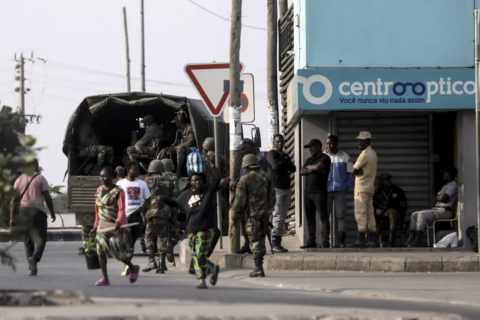In this scenario of uncertainty and discouragement, the Executive announced a decision that deserves attention and reflection: the provision of 50 billion kwanzas to support vandalized companies and 25 million dollars, equivalent to 25 billion kwanzas, to strengthen the capacity of importing companies, for a total of 75 billion kwanzas to be injected directly into the real economy. This gesture goes far beyond mere one-off aid; it is a clear demonstration of the State's commitment to preserving economic activity, protecting jobs, and fostering confidence in the business environment.
By allocating a significant portion of these resources to companies affected by the vandalism, the Government is not only compensating for material losses. It is ensuring that entrepreneurs, workers, and families can rebuild their livelihoods and resume their activities with dignity and safety. Many of these companies, particularly micro, small, and medium-sized enterprises, constitute the heart of local commerce and the population's closest link to the formal economy. Without this support, the risk of permanent closures, mass unemployment, and the collapse of supply chains would be high, with lasting negative impacts on Gross Domestic Product and the social climate.
The $25 million in support for importing companies is equally strategic. Much of the supply of food, medicine, equipment, and raw materials depends on imports; the interruption or weakening of this activity would have serious consequences, including shortages of essential products and sharp price increases. By ensuring that these companies maintain their purchasing and distribution capacity, the Executive acts preventively against inflationary risks and shortages that could affect millions of consumers.
The way this support will be implemented is also important. Companies will be required to present documentary evidence of the losses suffered, from photographic records and damage reports to inventories and invoices attesting to the losses. This requirement aims to ensure that resources are allocated fairly and transparently, avoiding abuse and ensuring that every kwanza invested reaches those who truly need it. The support consists of granting credit with subsidized rates of 5% and a grace period of up to 9 months, which is available through a special financing line through commercial banks (BPC), for a period of 12 months.
The expected impact of this financial injection goes far beyond simply replacing goods or repairing structures. Each kwanza injected into business recovery tends to generate a multiplier effect on the economy, creating a virtuous cycle: companies resume sales, preserve jobs, pay salaries, reactivate contracts with suppliers, and once again contribute to the State's tax revenues. This dynamic strengthens not only the beneficiary companies but the entire national economic ecosystem.
Beyond the immediate results, this measure sends a powerful message to national and international investors: Angola is a country that values and protects the private sector. In a global context where competition to attract investment is intense, demonstrating that the State acts quickly and firmly to mitigate the impacts of crises and ensure business continuity is a valuable asset for the country's reputation. Investors seek legal certainty and stability, but also clear signs that the business environment is resilient and that there is a genuine commitment to business prosperity.
Of course, the success of this measure will depend on several critical factors. Agility in implementation is essential; resources need to reach entrepreneurs quickly to prevent the financial situation of some companies from becoming irreversible. Transparency and oversight are also crucial to prevent misappropriation or misuse of funds. It is also important to offer, in addition to financial support, technical support that helps companies restructure their processes, strengthen their resilience, and adopt preventive measures against future crises.
This moment, although born of painful circumstances, can become an opportunity to strengthen national cohesion. It is an opportunity to demonstrate that, in the face of difficulties, Angola is capable of uniting around constructive solutions. More than rebuilding walls and replenishing stocks, this initiative can restore an intangible but essential asset: mutual trust between the government, the private sector, and society.
The 75 billion kwanzas in support is not simply a public expenditure; it is an investment in the country's present and future. It is a bridge that connects the immediate response to building a more solid economy, prepared to face adversity. If well executed, this program will not only restore hope to hundreds of entrepreneurs and thousands of workers, but will also serve as an example of how Angola can transform adversity into strength, loss into opportunity, and crisis into an engine of growth.








